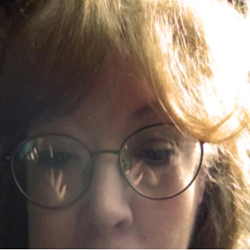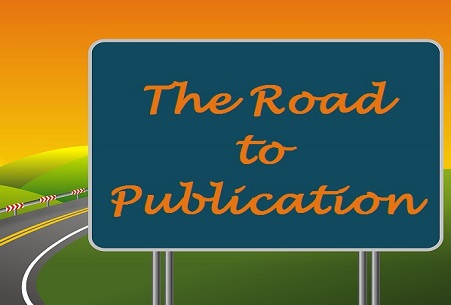Writing Tips from a Bestseller: How to Build a Long Career
Welcome to USA Today bestselling Contemporary Romance Author, Barbara Bretton. Her 40+ books have more than 10 million copies in print. Barbara graciously agreed to dash off her best advice to authors who want to build their careers over the long-term – and keep their writing fresh. See her writing tips, below!
Ten Tips for Writers who
Want to Build a Long Career
By Barbara Bretton
Expect rejection but don't embrace it. Rejection is a fact of a working writer's life. You will be rejected at some point in your career. Probably numerous times. Get over it. Allow yourself twenty-four hours to cry, moan, whine, or say terrible things about those #*@(! Editors who didn't understand your brilliance. But when the clock slips toward hour #25, put it all behind you and send that manuscript out again.
2.
Write what you love, not what you think will sell. You might get away with it once but, trust me, the readers will figure it out sooner rather than later and they will turn away in droves. Respect your genre. Respect your readers. You can’t sustain a writing career built on a false foundation. You also can’t hide behind your words. You might be writing fiction but your stories are as revealing as an x-ray and, believe it or not, even more personal.
3.
Watch out for the time vampires, human and electronic. Learn to say no and mean it. Working from home has its undeniable benefits but the drawbacks can be considerable. Because you’re home, you’re considered available to take deliveries, run errands, perform emergency babysitting duties, take friends and relatives to doctors’ visits, you name it. If you expect to be taken seriously, if you expect to actually get some work done, you’ll have to say no. And this “just say no” policy extends to your social life, too. In fact, for most of us our social lives are the first victim of our writing career. It isn’t fun, but learn how to protect your writing time.
4.
Stay current. The marketplace is changing. Reading fads come and go in the blink of an eye. Read everything you can get your hands on. New Adult. Paranormal. Cozy mysteries. Understand what’s doing well and why. Soak up new ways of telling familiar stories. Sample the latest TV shows, especially the ones that seem to be resonating with a wide audience. Read magazines like People, Entertainment Weekly, Time, Vanity Fair, Architectural Digest, anything that comes your way. Take notes. Rip out pages. Bookmark sites. Know the latest slang but be wary of using it. Nothing dates a book faster than “groovy” and “far out.”
5.
Read. Sounds silly, doesn’t it? Who needs to be reminded to read? Working writers, that’s who. We’re so busy writing that we forget the magic that’s found in absorbing someone else’s words. Make sure you set aside time to read for the sheer pleasure of it. That’s why we started writing, isn’t it? The pleasures found in reading will translate themselves to your writing.
6.
The creative mind is a restless animal. Change things up every now and then to keep it interesting. Used to working on the computer? Try old-school pen and paper today. Tired of the view from your home office window? Head out to Starbucks or your local coffee shop and see what happens. Feel like you’re trapped in Word? There’s lots of plotting/writing software worth a look. Check out Scrivener and Writeway. Give NaNoWriMo a shot next year.
7.
Don’t quit your day job the second you sell your first book. Well, maybe if you sell it for six figures or more but even then I’m not sure I’d recommend it. Some people write prolifically and well under pressure. Some people cave and never write again.
A first book is an achievement. A second book is sometimes a miracle. Be sure your career is on solid ground (or as solid as the ground beneath a writer’s feet can be) before you make life-changing decisions.
Years ago I read some advice from novelist Lawrence Block that’s stuck with me for decades. Writers should leave beneath their means. Block always did and that may be one of the reasons for his amazing output. He didn’t put himself in dire straits and then have to write (and sell) quickly and often to extricate himself.
It was very different in the 1980s when I sold my first book. Many of us bought houses that were way beyond our financial comfort zones and lived to regret it as the market shrank. Learn from our mistakes. Live frugally and write well.
8.
It is commonly assumed that a writer needs a home office, a state-of-the-art computer, 24/7 access to the internet, an assistant to handle the mundane business details. There’s more but I think you get the picture. All of those things are wonderful and can make a difference, but you can write – meaning you can TELL YOUR STORY – without any of them. Don't think you have to have everything in place in order to write because you don't.
A scrap of paper and a bitten-down pencil will get the job done in a pinch. To be honest, you don’t even need quiet or privacy. When I’m in the zone, I can write anywhere and have. Doctors’ waiting rooms. Parking lots. In the passenger seat of a moving vehicle. On planes. At the beach. (Tough working conditions, right?) At an Atlantic City casino, sitting in front of a slot machine.
When the Muse is with you, she doesn’t much care where you are or how well-equipped your situation. The words don’t care either. Just grab the words and hold them tight so they can’t get away. How you do it doesn’t matter. Pen. Pencil. Laptop. Tape recorder. I knew a writer who left long voice mail messages for herself, messages that were plot notes and short scenes that had formed while she made her daily commute. There is no right or wrong way. There is no one-size-fits-all set-up. One day you’ll have the beautiful office and all the goodies that come with it, but don’t ever think that’s what makes you a writer. Words make you a writer. Story makes you a writer. Everything else is window dressing.
9.
Run your own race. My first editor gave me that piece of advice at the beginning of my career and it has helped me in more ways than I can possibly tell you. We live in a world of numbers. Bestseller lists. Sell-throughs. Amazon rankings.
There are a million ways to measure yourself against your competition and find yourself lacking. The quicker you realize that you’re not Nora Roberts or James Patterson or Name Your Own Favorite Mega-Bestselling Author the better off you’ll be. Measure your successes against your own previous successes. Work at the speed that comes naturally to you.
Some people need only four hours of sleep a night. Some need ten. Some writers can turn out three full-length books a year. Some need three years to turn out one. It won’t take long for you to figure out your natural pace and once you do, pay attention! Do you want to still be writing and selling ten years from now? Running your own race and not some other writer’s is a big part of how you get there.
10.
Show up. Every. Single. Day. Don’t let the fragile link between your imagination and the page break. Get words on the page every day. They don’t have to be good words. But there must be words. Working writers write. Working writers turn out the pages. That’s how you build a long career.
I wish you all good luck!
About Barbara Bretton
 Barbara Bretton is the USA Today bestselling, award-winning author of more than 40 books. She currently has over ten million copies in print around the world. Her works have been translated into twelve languages in over twenty countries.
Barbara Bretton is the USA Today bestselling, award-winning author of more than 40 books. She currently has over ten million copies in print around the world. Her works have been translated into twelve languages in over twenty countries.
Barbara has been featured in articles in The New York Times, USA Today, Wall Street Journal, Romantic Times, Cleveland Plain Dealer, Herald News, Home News, Somerset Gazette, among others, and has been interviewed by Independent Network News Television, appeared on the Susan Stamberg Show on NPR, and been featured in an interview with Charles Osgood of WCBS, among others.
Her awards include both Reviewer's Choice and Career Achievement Awards from Romantic Times; Gold and Silver certificates from Affaire de Coeur; the RWA Region 1 Golden Leaf; and several sales awards from Bookrak. Ms. Bretton was included in a recent edition of Contemporary Authors.
Barbara loves to spend as much time as possible in Maine with her husband, walking the rocky beaches and dreaming up plots for upcoming books.








